 Here is a picture of my father holding me in front of my first home. The car is as big as the trailer. You can see that there are two sections -- one end was the living room. The couch let down into a bed and that's where my parents slept. The other section was the kitchen and the cushions on the benches and the table let down to make a second bed. That was my bed, and when Forrest was born, he slept with me. There wasn't enough room to open a door inside, so there was a curtain between the two rooms, which meant I fell asleep at night to the sound of my parents talking. When they had taken a book out of the library or received a Book of the Month Club selection that they both wanted to read, they would take turns reading aloud. Many a night I fell asleep to the sounds of them reading to each other. If the book was funny, they would both laugh which I just loved.
Here is a picture of my father holding me in front of my first home. The car is as big as the trailer. You can see that there are two sections -- one end was the living room. The couch let down into a bed and that's where my parents slept. The other section was the kitchen and the cushions on the benches and the table let down to make a second bed. That was my bed, and when Forrest was born, he slept with me. There wasn't enough room to open a door inside, so there was a curtain between the two rooms, which meant I fell asleep at night to the sound of my parents talking. When they had taken a book out of the library or received a Book of the Month Club selection that they both wanted to read, they would take turns reading aloud. Many a night I fell asleep to the sounds of them reading to each other. If the book was funny, they would both laugh which I just loved.The other thing about this trailer is that it was bigger on the inside than on the outside. It had to have been, because it was so full of love and laughter and warmth and cheer that nothing as small as that trailer looks to be from the outside could have possibly contained it. My parents had this incredible romance. The first time they met, my father went home and woke up his mother and told her he had met the woman he was going to marry. My father had been divorced, and my mother was worried that her father wouldn't let them get married once he knew, so during the last month of my mother's senior year of high school, my father hired a pilot to fly them to Carson City, Nevada where they were married.
The day after Pearl Harbor my father tried to enlist. Because he had flat feet and was deaf in one ear, no branch of the service would take him and he tried them all. Since he couldn't serve in the military, he and my mother moved to Oakland and he worked in the shipyards building war ships. Between the hulls. The noise there was so bad that he lost the hearing in his other ear, but he never complained about it. It was simply what he did during the war. After that, he wore hearing aids, and in those days they were huge. The speaker sat in his shirt pocket, there were very visible ear pieces in both ears, and wires ran under his shirt to the speaker and to the two large batteries that filled his back pants' pockets. They weren't very good, either. He couldn't talk to more than two people at a time and really hear what they were saying. Background noise could drown out voices. It made it awkward for him to make friends at work and my mother says he was often lonely because of it. He had always been a very gregarious person, and to be unable to communicate easily had to have been very hard.
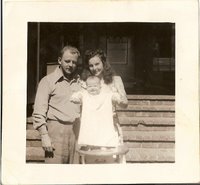 I was born not quite five months after Pearl Harbor, and my parents were living in an apartment at the time. As soon as the war was over, we moved into the trailer and traveled from one end of California to the other. My father, who had started out as a musician, was now in construction and whenever the mood struck him, we would move so he could work on some other project. If they were building it in California in the late 40s, my father may well have worked on it.
I was born not quite five months after Pearl Harbor, and my parents were living in an apartment at the time. As soon as the war was over, we moved into the trailer and traveled from one end of California to the other. My father, who had started out as a musician, was now in construction and whenever the mood struck him, we would move so he could work on some other project. If they were building it in California in the late 40s, my father may well have worked on it.Years later, I would meet people who had known my father and they would tell me that when he entered a room it was like the sun came out from behind a cloud. Suddenly, the room was full of warmth and light. That he made them feel important when he listened to them. That he made them laugh. I remember him climbing into the very highest branches of the conifer in my grandmother's front yard and calling down that it would be perfect if only there was a pool table. And he loved to put a bobby pin inside a cigarette and when he smoked it the ash would cling to the bobby pin and he would ignore it and people would be hovering around with an ashtray waiting for the ash to fall, which it never did. He sang me songs like Mairze Doatz and Three Liddle Fiddies (about three fish who swam and swam all over the dam) and Hot Sot Ralston on a Rilara (I haven't a clue what this was about, but it involved deep voices and shoulder motions) and all of those silly word play songs of the 30s and 40s.
One thing about having a very small home, my mother could clean it in a very short time, and then she had hours while my father was at work alone with me. She taught me all the nursery rhymes and took me to the park and played with me. I was the center of the universe, and I knew it. Except for when I was getting my clothes torn or dirty, it was almost impossible for me to displease my mother. She would put me on the handle bars of her bike and we would go all over.
We had lived in 26 towns by the time I was six; my parents intended to settle down and get a house when I started school. But before that happened, my father stepped on a rusty nail and got tetanus and died. I have lived in all sorts of places since. Had a real bed in my own bedroom with a real door. I was never as rich as when we lived in that trailer and I slept on the kitchen table. I learned very early that things don't matter, but people do. The most important thing you can give your child is love, both for the child and for the other parent.
When people see the picture of our home, they think we were poor. And when they hear that my father died, they feel sorry for me. But, there was never a child who got a better start in life than I did. And if I had to choose between six years with my father and a lifetime with any other, I would choose those six years.
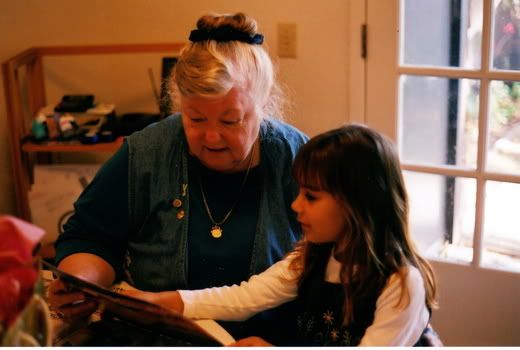
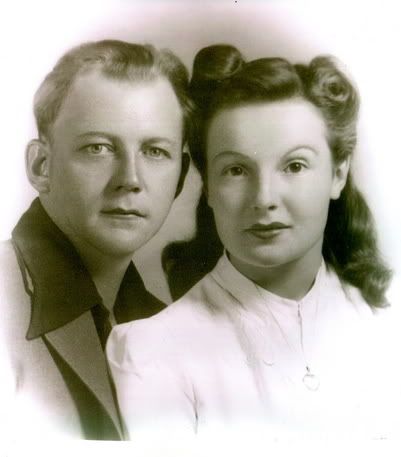
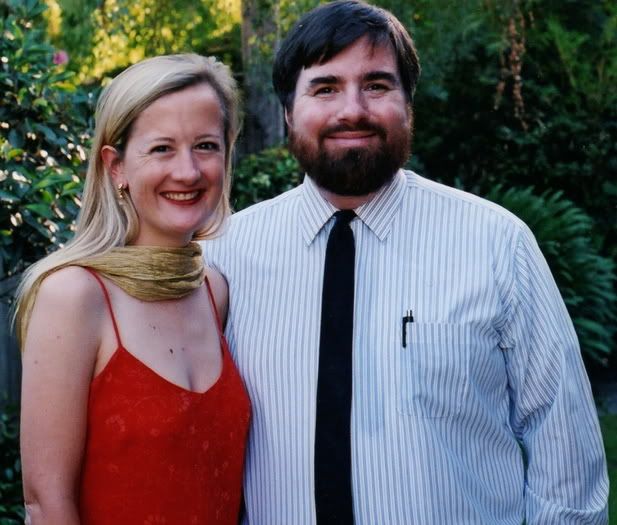
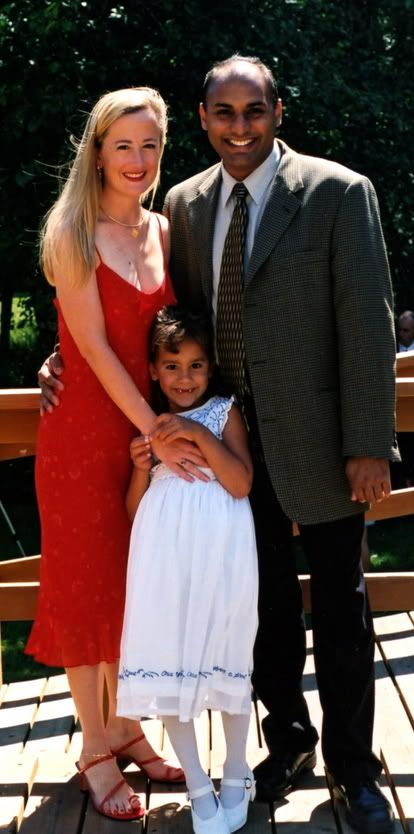
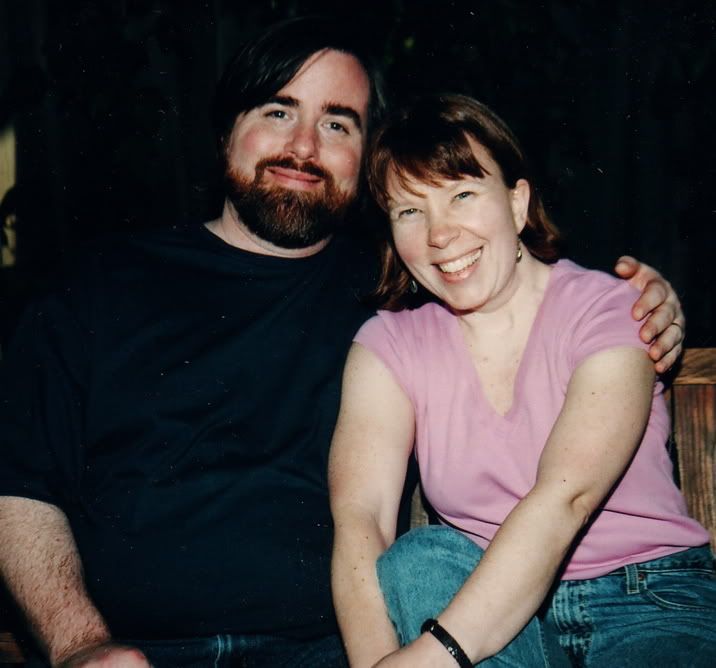













12 comments:
I didn't know your dad suffered from hearing loss. I wonder if that's why he gave up music?
Thank you for sharing this.
That just about broke my heart. Such a nice tribute.
The TEARS!
Thank you for sharing! That was beautiful, and a shining testiment to the fact that parents make a child a better person, not the money or the clothes or the toys.
Ted, I'm not sure why he left music. My parents met at the end of the Depression, and he may have been unable to find work in music before he lost his hearing because of that. Of course, during and after the war, when there were jobs in music, he couldn't go back into it -- those hearing aids were useless for that kind of thing.
Saz, When my father died he was 34 and my mother was 25. From the perspective of 64, they were both just babies. That's much too young to die, and much too young to be a widow with two little children.
Oh, this moved me, I have tears in my eyes.
Wonderful post and thank you for writing this.
What a lovely tribute. You've made me think of my father, and therein lies another blog.
What a wonderful story! I envy the solid foundation on wheels your parents provided for you.
Wow....that brings it full circle back to me. I was talking to a friend just the other day about our childhood.
We thought we were so poor at the time but have come to realize how rich we truly were.
It makes me sad for todays kids. They don't have a clue?
I mean things like making your own slingshot, or making a Bow & Arrow, and even riding a tobacco stick while pretending it's a horse while you're playing cowboys and indians.
Thanks for such a memorable post! You are truly rich in the best kind of way!
It was wonderful to share this story with you Joycelyn...especially about your father. I have wonderful memories about my dad too, but I had him until I was 21 years old. And yes, even having him for 6 years was worth everything.
What a wonderful post. It would be a great world if every child could feel as you did about your first 6-7 years. I am sorry you lost your dad at so young an age.
[Hot Sot Ralston on a Rilara (I haven't a clue what this was about, but it involved deep voices and shoulder motions] --
"The Ralston is a Swedish Town, The Rilara is a stream, The Brala is a boy and girl and the Suet is their dream,"
-- From the words of the song. I had it on a 78 RPM record many years ago but it did not survive. Can still hum it but don't remember many of the other words.
Post a Comment